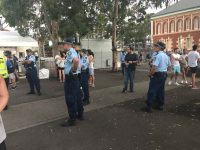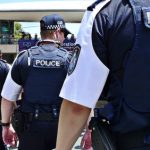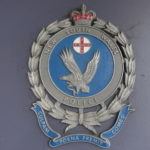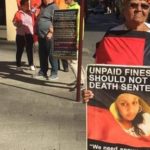NSW Police Are Illegally Strip-Searching Children

She was sixteen years old and ready to enjoy the time of her life. Moments later she was naked, crying and alone with a police officer who demanded she lift up the panty liner of her underwear as part of a strip search.
This is what happened to teenage girl, who is known only as BRC (to protect her identity), after a sniffer dog sat next to her in the queue to enter Byron Bay’s Splendour in the Grass Music festival in 2018.
After the indication, police separate BRC from her friends, took her to a tent and told to remove her clothes and squat – a process that left the teenager humiliated and afraid, and for no reason. The strip search turned up nothing.
“I could not believe this was happening to me; I could not stop crying; I was completely humiliated”, the teen told the NSW Law Enforcement Conduct Commission (LECC).
“I was absolutely shocked that the police would do this to me.”
The inquiry
BRC’s story is just one of the cases being investigated by the LECC, whose inquiry is looking into the legality of the 143 strip searches conducted by NSW police officers on attendees at 2018’s Splendour in the Grass music festival in Byron Bay.
The inquiry has heard evidence that nothing illegal was found in 90% of the strip-searches, and that of the seven strip searches conducted on children, only one was in the presence of a parent, guardian or other suitable adult as required the law.
All 19 strip searches by one officer were illegal
One police officer who conducted 19 strip searches on male attendees at Splendour admitted to the inquiry that all of the searches may have been illegal.
He conceded that none of the searches met the requirement of “seriousness and urgency” prescribed by section 31 of the Law Enforcement (Powers and Responsibilities) Act 2002 (NSW), making the searches illegal.
The inquiry also heard that while police officers are supposed to keep records of all strip-searches and the reasons for them, those records aren’t being routinely checked or audited.
Inquiry into drug-related related deaths at festivals
The recent Coronial inquiry into drug-related deaths at music festivals also considered the use of strip searches at music festivals, calling for greater scrutiny and transparency around protocols and people’s rights.
Many are concerned that while it may seem obvious that police need more training, education and more stringent guidelines around strip searches the fact remains that they have become almost ‘routine procedure’ which is not was intended when they were legislated. They were supposed to be used only as a last resort, in circumstances when there is no other alternative available.
Because the fact remains that a strip search is a highly invasive procedure and it does have the potential to be exceptionally damaging if it is not handled with appropriate care.
Police guidelines are ‘vague’
The Coronial inquiry heard evidence to support the fact that official police guidelines for strip searches are open to considerable personal interpretation, that there is little accountability or transparency around the practice, and that furthermore, officers seem to have little-to-no training, or inadequate training in the correct way to conduct a strip search.
One serious concern is the inconsistency in the clarity of the definitions of “seriousness and urgency” which dictate the circumstances in which a strip search can be carried out. Police therefore have a tendency to believe that they have the power to conduct a search simply because an officer “suspects on reasonable grounds” that it is necessary.
Spike in strip searches
Earlier this year, data showed that ‘field’ strip searches in NSW (excluding those conducted in police stations) increased by almost 47% over four years. And on average, searches turned up nothing illegal – drugs, weapons etc – more than 60% of the time.
These figures paint a disturbing picture of potential misuse / over-use of strip searches, a process that is degrading and distressing for anyone subjected to it. In some instances, young people have actually said that the practice has caused them emotional and psychological trauma.
What’s more alarming is that many of these searches are not being carried out in accordance with police protocol, with reports of police conducting strip searches in public, and also illegally conducting strip searches on Aboriginal children and teenagers.
In New South Wales, it is illegal for police to strip search anyone under the age of 18 without an adult present – a ‘support person’ such as a parent, guardian, juvenile justice officer or friend. In the case of BRC, it’s alleged that police asked her age and took her identification but did not call her parents or anyone else capable of caring for her, a clear breach of their search powers.
In New South Wales it is not permissible to strip search children under the age of 10, under any circumstances.








